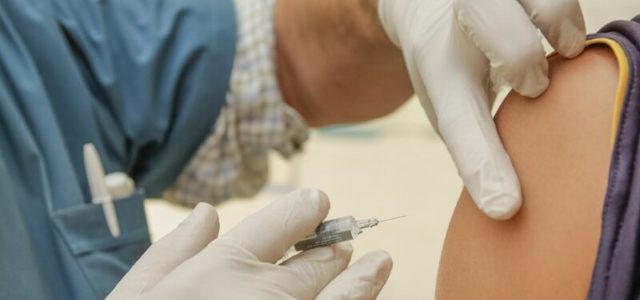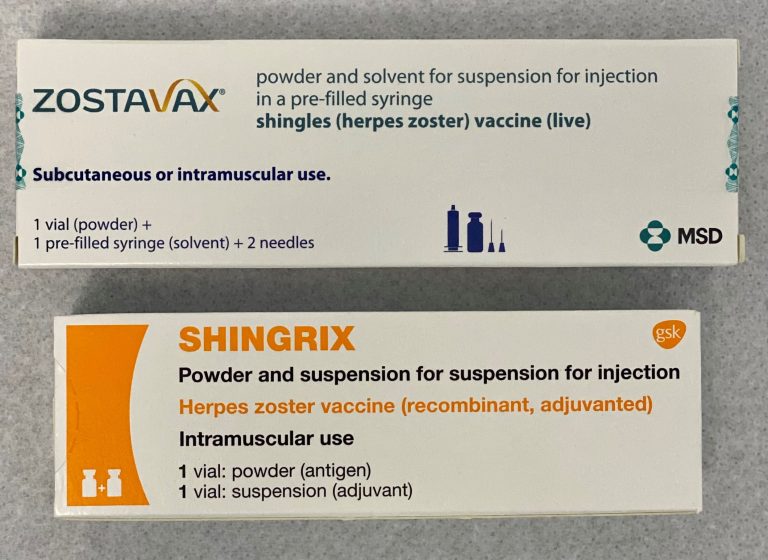GSK plc (LON/NYSE) has announced that the US Food and Drug Administration (FDA) has accepted for review a Biologics License Application (BLA) for its 5-in-1 meningococcal ABCWY (MenABCWY) vaccine candidate. The Prescription Drug User Fee Act (PDUFA) action date for a regulatory decision by the US FDA on this application is 14 February 2025.
· Vaccine candidate provides broad coverage against the five most common groups of bacteria causing invasive meningococcal disease and could reduce number of injections to simplify immunisation, if approved
· Prescription Drug User Fee Act action date set by FDA for 14 February 2025
· Submission based on results from pivotal phase III trial showing all primary endpoints met
GSK’s 5-in-1 MenABCWY vaccine candidate combines the antigenic components of its two well-established meningococcal vaccines with demonstrated efficacy and safety profiles, Bexsero (Meningococcal Group B Vaccine) and Menveo (Meningococcal [Groups A, C, Y, and W-135] Oligosaccharide Diphtheria CRM197 Conjugate Vaccine). The MenABCWY combination will target the five groups of the bacteria Neisseria meningitidis (Men A, B, C, W and Y) that cause most invasive meningococcal disease (IMD) cases globally.[1]
Combining the protection offered by these vaccines into fewer shots aims to reduce the number of injections, simplifying immunisation. This can help increase series completion and vaccination coverage and help reduce the overall burden of IMD, with unvaccinated adolescents being at particular risk of infection and potential outbreaks.[2],[3],[4]
IMD is an unpredictable but serious illness that can cause life-threatening complications.[5] Despite treatment, among those who contract IMD one in six will die, sometimes in as little as 24 hours.[6],[7] One in five survivors may suffer long-term consequences such as brain damage, amputations, hearing loss and nervous system problems.[8] Although anyone can get IMD, those who are in their late teens and early adulthood are amongst the groups at higher risk of contracting it.[9],[10]
In the US, while meningococcal vaccine recommendations for all five serogroups have been in place since 2015, annual immunisation rates for IMD have remained low overall, due in part to a complex schedule.[11] MenB is the most common group of IMD-causing bacteria in US adolescents and young adults, accounting for more than half of the IMD cases among this age group in the US from 2017-2021.[12] For protection against MenB, which is subject to the shared clinical decision-making recommendation of the CDC, just under 12% of US adolescents have had the two required doses.10
In the phase III trial (NCT04502693), all primary endpoints were achieved for the MenABCWY vaccine candidate, including immunological non-inferiority to one dose of GSK’s Meningococcal Groups A,C,Y and W Vaccine, and non-inferior immune responses against 110 diverse MenB invasive strains (representing 95% of MenB strains circulating in the US) as compared to two doses of GSK’s Meningococcal Group B Vaccine. The vaccine was well tolerated with a safety profile consistent with both vaccines.[13]
[1]. CDC. Meningococcal Disease Causes and How It Spreads. Available at: https://www.cdc.gov/meningococcal/about/causes-transmission.html. Accessed April 2024.
[2]. Bekkat-Berkani R, Fragapane E, Preiss S, Rappuoli R et al. Public health perspective of a pentavalent meningococcal vaccine combining antigens of MenACWY-CRM and 4CMenB, Journal of Infection Vol 85, Issue 5, p481-491, published November 2022.
[3]. Huang L, Snedecor S et al. Potential public health impact of a Neisseria meningitidis A, B, C, W, and Y pentavalent vaccine in the United States, Postgraduate Medicine, 134(4):341-348 published May 2022.
[4]. CDC. University-Based Outbreaks of Meningococcal Disease Caused by Serogroup B, United States, 2013-2018 – Volume 25, Number 3-March 2019 – Emerging Infectious Diseases journal – CDC. Available at: https://wwwnc.cdc.gov/eid/article/25/3/18-1574_article. Accessed April 2024.
[5]. CDC. Bacterial Meningitis, Available at: www.cdc.gov/meningitis/bacterial.html. Accessed April 2024.
[6]. World Health Organisation. Meningitis fact sheet. Available at: https://www.who.int/news-room/fact-sheets/detail/meningitis. Accessed April 2024.
[7]. Thompson MJ et al. Clinical recognition of meningococcal disease in children and adolescents. Lancet. 2006. 367, 397-403.
[8]. CDC. Meningococcal disease: clinical information. Available at: https://www.cdc.gov/meningococcal/clinical-info.html. Accessed April 2024.
[9]. McNamara LA, Blain A. Meningococcal Disease Roush SW, Baldy LM, Hall MAK, eds. Manual for the Surveillance of Vaccine-Preventable Diseases. Centers for Disease Control and Prevention. Reviewed January 5, 2022. Accessed April 2024.
[10]. Pingali C, Yankey D, Elam-Evans LD, et al. Vaccination coverage among adolescents aged 13-17 years – National Immunization Survey-Teen, United States, 2022. MMWR 2023; 72(34): 912-919.
[11]. Schillie S. Revising the Adolescent Meningococcal Vaccine Schedule: Term of Reference and Considerations. Available at: https://www.cdc.gov/vaccines/acip/meetings/downloads/slides-2024-02-28-29/02-Meningitis-Schillie-508.pdf. Accessed April 2024.
[12]. CDC. Enhanced Meningococcal Disease Surveillance Reports, 2017-2021. Available at: www.cdc.gov/meningococcal/surveillance/index.html#enhanced-reports. Accessed April 2024.
[13]. NIH. Effectiveness of GlaxoSmithKline Biologicals S.A’s Meningococcal Group B and Combined ABCWY Vaccines in Healthy Adolescents and Young Adults, ClinicalTrials.gov. Available at: https://clinicaltrials.gov/study/NCT04502693. Accessed April 2024.








































